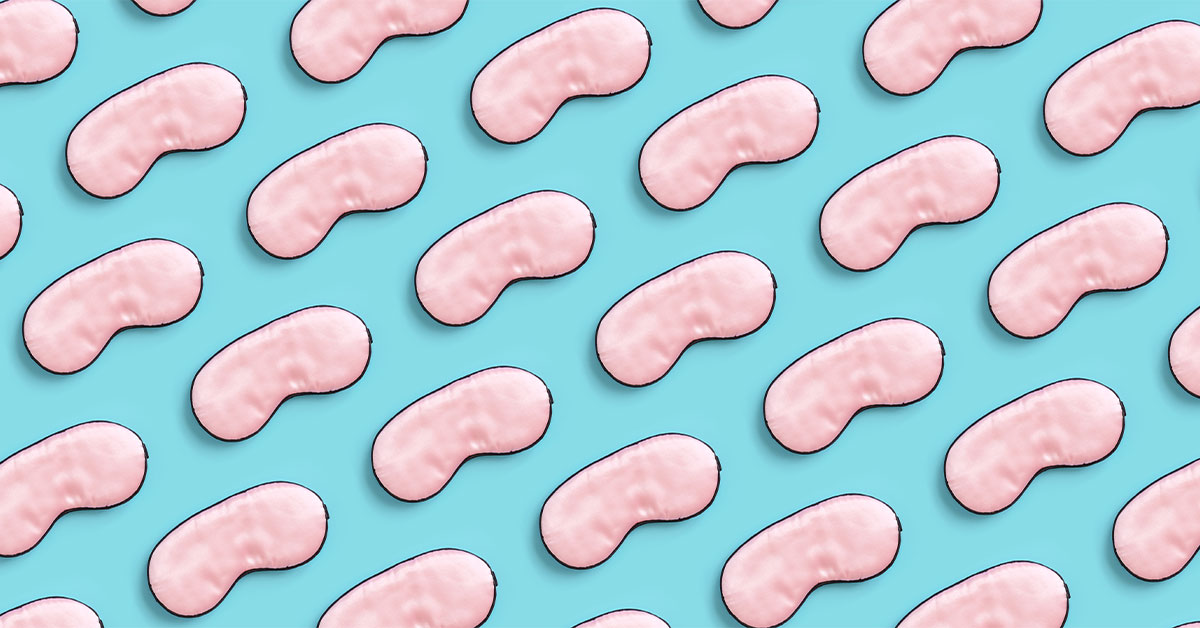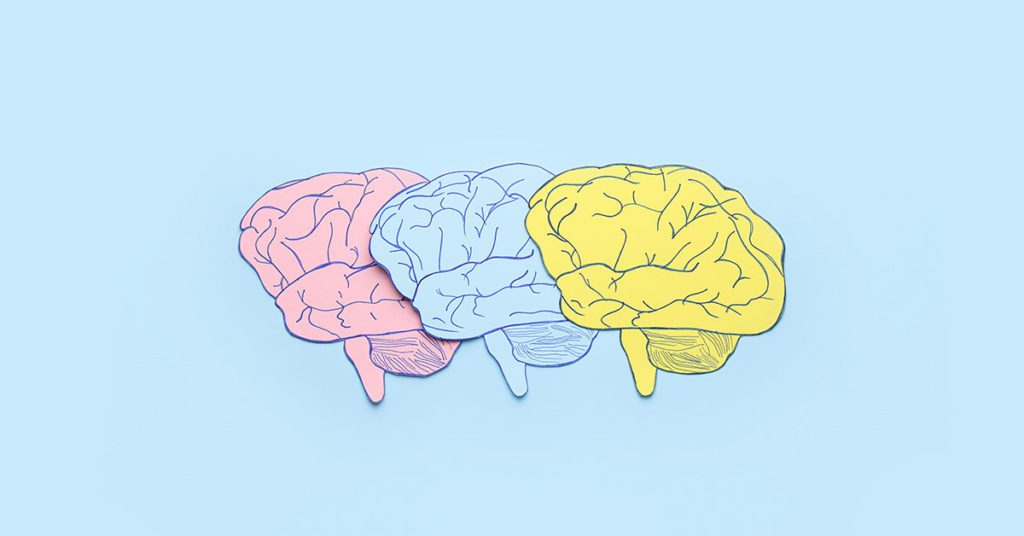


The Relationship Between Melatonin and Restful Sleep
Getting enough restful sleep is one way to improve both your mood and your cognitive performance. Sticking with healthy sleep habits can provide many long-term benefits for your metabolism and immune system.
Found in the core of our brain, the pineal gland helps maintain our circadian rhythm. The pineal gland plays a vital role in sleep function because it is responsible for secreting the hormone, melatonin. It allows our body to process light conditions properly for optimal rest.
Aspire to get at least seven to eight hours of restorative sleep per night. Melatonin is a helpful sleep aid for promoting quiet wakefulness and reaching quality sleep. Research is still in progress, but it is suggested that melatonin improves sleep quality and morning alertness.
Does Melatonin Work?
This sleep aid is a dynamic and versatile antioxidant that can protect your body and brain.
The naturally occurring hormone affects our circadian rhythm and cell protection. As we age, our bodies may begin developing less melatonin.
It is highly beneficial to maintain our melatonin levels throughout our lives because it protects our cognitive wellbeing. It can also improve bodily response to inflammation and stress.
Obstacles That Can Disrupt Sleep
There is a wide range of factors that can cause sleep difficulties. Lifestyle, environment, work shifts, hormonal changes, sleep disorders, and predisposed health conditions are just a few factors that can impact sleep quality.
Inconsistent Schedules
Constantly changing schedules can impact your circadian rhythm and affect your perception of day and night. Follow good sleep habits by keeping a regular sleep schedule. Establishing a daily routine can help improve melatonin production levels. It can take time for your body to adjust to a new schedule because melatonin levels increase when in dark conditions.
Night Shift Schedule
It can be challenging to maintain optimal melatonin levels when working or following a night shift schedule because it limits your exposure to natural sunlight. Invest in blackout curtains and wear an eye mask while sleeping to help obtain good daytime sleep.
Travel Fatigue
You might experience jetlag when traveling to different time zones, which can affect our ability to obtain restful sleep. Jetlag is the tired feeling you get after following a disruptive sleep pattern outside your typical routine.
Insomnia
This sleep disorder can become chronic and affect your ability to stay asleep, prepare for sleep, and maintain restful sleep levels. Short-term insomnia can be caused by schedule changes, time zone adjustments, and stress.
Rapid Eye Movement (REM) Sleep Behavior Disorder
REM sleep behavior disorder is defined by random body movements and vocalizations while in deep sleep, which is when vivid dreams occur. In normal REM sleep, the body may experience some temporary muscle paralysis, but this disorder can cause the individual to physically express their dreams and become hazardous to those around them while sleeping.
Sleep Apnea
This is a sleeping disorder characterized by abnormal breathing symptoms, loud snoring, and intermittent breathing that stops and starts randomly. There are three types of sleep apnea: obstructive, central sleep, and complex (mixed).
Sleep-disordered breathing can make sleeping more challenging and may require a Continuous Positive Airway Pressure Machine (CPAP) machine to assist with monitoring and improving air pressure levels and reducing snoring.
Restless Leg Syndrome
This movement and sleep disorder can cause daytime sleepiness because it causes discomfort and unpleasant sensation in the legs. This can occur during rest or sitting, and the legs may need to be flexed or stretched to alleviate the discomfort.
Menopause
While going through menopause, women in their mid 50’s experience hormonal changes that can cause hot flashes, insomnia, and sleep disorders. Hot flashes are a form of unanticipated, sudden night sweats that can be uncomfortable and disruptive to sleep.
Digestive Disorders
Digestive disorders such as irritable bowel syndrome (IBS), small intestinal bacterial overgrowth (SIBO), gastroesophageal reflux disease (GERD), gallstones, celiac disease, and Crohn’s disease may interfere with sleep due to the range of digestive issues that can occur in these conditions.
Your sleep can become compromised if you consume heavy foods right before bedtime, especially for those with irregular digestion. It’s important to monitor how late you consume your last meal before bed. Avoid foods or drinks high in caffeine prior to the hours before bedtime to prevent blood sugar spikes and restless sleep.
Periodic Limb Movement Disorder
This is one of the most common sleep disorders in children and affects their duration and quality of sleep. They may have trouble staying asleep and wake up throughout the night—which can contribute to daytime tiredness and put them at greater risk for other sleep disorders. This movement disorder often occurs in combination with restless leg syndrome (RLS).
Eight Benefits of Melatonin
Staying asleep can be challenging when confronted with a variety of stressors and disruptive sleep obstacles. Taking melatonin is a remarkable remedy for those who are struggling to maintain optimal circadian rhythm levels to achieve restful sleep. This sleep aid is helpful for providing support for sleep disorders and other sleep problems.
1. Fosters Brain Support
Studies show that melatonin has wondrous potential as a vital source of neuroprotective support. It is produced by your brain in response to darkness and helps regulate sleep cycles.
2. Encourages Healthy Circadian Rhythm
It has been shown that melatonin can be efficient in supporting improved quality of sleep by promoting a synchronized circadian rhythm.
3. Promotes Energy
Melatonin helps with generating adenosine triphosphate (ATP), which fosters a healthy balance in the mitochondria and decreases the risk of mitochondrial dysfunction.
ATP is important because it is the fuel that powers up our cells.
Melatonin helps regulate nuclear gene transcriptional activities that are responsible for mitochondrial support.
4. Increases Serotonin Production
It’s important for long-term brain health to practice good sleep hygiene and encourage serotonin production.
Too much light exposure before bedtime can affect melatonin and serotonin production levels. It will decrease feelings of sleepiness and make it more challenging to fall asleep quickly.
Make it a healthy habit to decrease your exposure to blue-light and lights from electronic back-lit devices before bedtime.
5. Protects Cognitive Wellbeing
Melatonin is a hormone that can help protect neuron cells from toxicities. Reducing levels of oxidative stress can reduce the risk of damage and improve defense mechanisms.
6. Facilitates Free Radical Cleanup
Melatonin is an antioxidant and a free radical scavenger. It is highly absorbent and can cross the blood-brain barrier easily.
Because of this ability, it can reach the central nervous system to regulate and lower toxicities.
Reducing free radicals helps to lower cell damage brought on by a host of health conditions. It can stimulate gene expression for antioxidant enzymes, which assist with replenishing our skin cells for a more youthful appearance.
7. Boosts Immune System
Deficient melatonin levels as we age can cause neurodegenerative conditions due to oxidative stress.
Lowering our exposure to stress can strengthen our defense mechanisms so our immune system can more effectively protect us.
Melatonin improves bodily response towards inflammation by stimulating immune system function.
Fortifying our immune system by increasing melatonin production has been suggested to protect against cellular dysfunction.
8. Supports Better Sleep
Taking melatonin can help balance your body’s internal system and promote relaxation so that falling asleep is easier.
Natural Ways to Increase Serotonin
Serotonin is a vital hormone that supports mood stabilization and happiness. Melatonin and serotonin are antioxidants that work together in signaling neurotransmitters and regulating stress management.
Regular Exercise
Physical exercise is a great way to regularly strengthen serotonin levels and improve brain health. It can also support attention, memory, and problem-solving abilities.
A Nutritious Diet
Pursue a brain-healthy diet rich in nutrients and full of anti-inflammatory foods that promote gut health. Consume nutrient-rich fruits and six to nine cups of organic vegetables daily.
Upgrade Your Gut Health
Optimizing your gut health is a great way to protect your brain health as well. The gut microbiome is closely connected with your brain and plays a role in affecting your mood.
Natural Melatonin Supplements
Taking melatonin supplements as part of your sleep routine is one way to promote restful sleep.
It can also help maintain optimal levels of neurotransmitters to deliver a healthy mood. Research shows that melatonin can possibly help reset the sleep-wake cycle.
Learn more about the importance of sleep on brain function and longevity in our blog post about brain health and your immune system.


